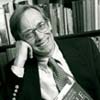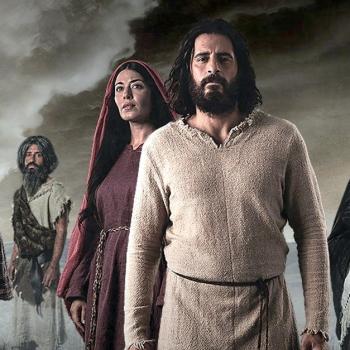 By Michael Coogan
By Michael Coogan
In one of his later works, Sigmund Freud, a great thinker of the late 19th and early 20th centuries, elaborated on his view of religion. The Future of an Illusion, published in 1927, is one of those brilliantly named works whose title tells the whole story: religion, Freud asserted, is an illusion, and it has no future. Freud used the term "illusion" in a strictly psychoanalytic sense: within his system, an illusion is an infantile kind of wish fulfillment developed by humans collectively. Freud's prediction has not so far stood the test of time, but his idiosyncratic take on the phenomenon of religion still has something to say.
Several interrelated trends strike me as prominent in the future of religion. One is the diminution of authority, whether lodged in an institution or religious leaders or sacred texts. In many communities of faith, such authority, once a given, is now challenged, or at least qualified, both in theory and in practice.
At the same time, there is also a movement in the opposite direction, toward what may generically be styled "fundamentalism." In my view, such a return to older forms of belief and observance is a kind of infantile longing for a past that never was. Such wish fulfillment provides an illusory certainty in a rapidly changing world. But unlike the self-contained authoritarian structures of the past, contemporary fundamentalism can no longer be self-contained and thus self-justifying. Thanks to the staggering speed of technology, individual believers have unlimited opportunity to look outside the box, as it were -- to observe, virtually as well as directly, how others deal with the basic issues of human existence.
Such global interconnectedness, now especially even from one's laptop, has resulted in rapidly increasing realignments both with and among religious traditions. This leads to another trend: although lack of uniformity has characterized all religions at various times in their histories, sectarianism will become more pronounced in religious traditions more broadly as well as in branches of each religion. Fluidity among religions will also intensify.
Religious institutions are by nature conservative, resisting change. On issues such as slavery and individual rights, religions have generally followed social change rather than led it, and not always immediately. In the coming century, as the pace of social change accelerates, a third trend will be the struggle with the patriarchy that still pervades many religious traditions even in the west. Significantly this is not simply an east-west divide: although the status of women in Islam is an increasingly debated issue with Islam itself, it is notable that the three countries with the largest Muslim populations in the world -- Indonesia, Pakistan, and Bangladesh -- have all had women heads of government, while the United States for example has not. So a quasi-Oedipal ending of patriarchal domination is still in process, both culturally and hence religiously as well. Other issues having to do with sex and gender will continue to challenge both individual believers and communities of faith, most prominently, perhaps, that of sexual orientation.
On issues such as these, as well as those having to do with all fields of science, religions will have to work hard at rethinking their relationship with the cultures of which they are a part, as well as with their sources of authority, especially, in the monotheistic traditions, with their scriptures. Otherwise, Freud's prediction may prove right after all.
Michael Coogan teaches at Harvard Divinity School and Stonehill College. He edited The Illustrated Guide to World Religions (1998), and The New Oxford Annotated Bible (2001; 2007; 2010), and has written and edited many other books, including The Old Testament: A Historical and Literary Introduction to the Hebrew Scriptures. In his most recent book, God and Sex: What the Bible Really Says, he explores the use and misuse of the Bible in contemporary discussions of so-called "family values," and offers suggestions for how, when properly interpreted, the Bible, although an ancient and culturally conditioned collection of divergent views, may continue to have relevance for contemporary readers.
9/7/2010 4:00:00 AM




